ড. আবদুল্লাহ এ. কাফি বর্তমানে অস্ট্রেলিয়ার ডিকিন বিশ্ববিদ্যালয়ের অস্ট্রেলিয়ান ফিউচার ফাইবারস রিসার্চ অ্যান্ড ইনোভেশন সেন্টারে (AFFRIC) কার্বন ফাইবার প্রসেসিং এবং কম্পোজিট উৎপাদনের ক্ষেত্রে গবেষণা একাডেমিক হিসেবে কর্মরত আছেন। তিনি বাংলাদেশে শাহ জালাল বিজ্ঞান ও প্রযুক্তি বিশ্ববিদ্যালয় থেকে কেমিক্যাল ইঞ্জিনিয়ারিং এবং পলিমার সায়েন্সে ব্যাচেলর ডিগ্রি অর্জন করেন এবং ২০১০ সালে ডিকিন বিশ্ববিদ্যালয় থেকে ম্যাটেরিয়ালস সায়েন্স অ্যান্ড ইঞ্জিনিয়ারিং (কম্পোজিটস) এ পিএইচডি সম্পন্ন করেন।
ড. কাফির গবেষণার মূল লক্ষ্য হলো প্রাকৃতিক ফাইবার বিশেষত জুটির সঙ্গে পলিমারিক ম্যাট্রিক্সের ইন্টারফেস বোঝা এবং উন্নত কম্পোজিট উপকরণ তৈরি করা। তিনি কম্পোজিটে ভেজিং এবং আডহিশন প্রক্রিয়ার মৌলিক নিয়মাবলী গবেষণা করেছেন এবং জুটিকে আন্তর্জাতিক বৈজ্ঞানিক ও শিল্প সম্প্রদায়ে একটি সম্ভাবনাময় রিইনফোর্সিং ফাইবার হিসেবে পরিচয় করিয়েছেন। তিনি পূর্বে বাংলাদেশ পারমাণবিক শক্তি কমিশনে কাজ করেছেন এবং বর্তমানে মেলবোর্ন, অস্ট্রেলিয়ায় পরিবারের সঙ্গে বসবাস করছেন।
💬 প্রশ্নোত্তর পর্ব:
প্রশ্ন: শৈশব ও সবচেয়ে প্রেরণাদায়ক স্মৃতি সম্পর্কে কিছু বলুন।
উত্তর: আমার শৈশবের বড় অংশ কাটেছে জুটি শিল্প সংলগ্ন আবাসিক এলাকায়, যেখানে আমার পিতা কাজ করতেন। বিভিন্ন জেলায় বসবাস করার কারণে বিভিন্ন সামাজিক ও ধর্মীয় পটভূমির মানুষের সঙ্গে পরিচয় হয়। ১৯৯০ সালে আমার পিতা জুটির ভবিষ্যত নিয়ে ভবিষ্যদ্বাণী করেছিলেন, যে যথাযথ পদক্ষেপ না নিলে জুটির স্বর্ণযুগ শেষ হয়ে যাবে। সেই সময়ের উপলব্ধি আমাকে গবেষণা ও সমাজসেবার প্রতি প্রেরণা দিয়েছে।
প্রশ্ন: আপনি কোন শৈশবের মুহূর্তগুলি মিস করেন যা আপনার সন্তানও উপভোগ করতে পারবে?
উত্তর: পরিবারের সঙ্গে কাটানো সময় যেমন মাছ ধরা, দীর্ঘ কথোপকথন, ব্যাডমিন্টন খেলা, সিনেমা দেখা এবং জুটি মিলের ক্রমাগত মেশিনের শব্দ বিশেষ মনে পড়ে।
প্রশ্ন: আপনার গবেষণার গুরুত্বপূর্ণ ফলাফল এবং সেগুলোর উদ্ভাবনে প্রভাব কী?
উত্তর: পিএইচডি চলাকালীন আমি কম্পোজিটে ভেজিং এবং আডহিশন বোঝার জন্য স্ট্যাটিস্টিক্যাল থার্মোডাইনামিক মডেল ব্যবহার করেছি। আমি ফাইবার ও পলিমারিক ম্যাট্রিক্সের পারস্পরিক ক্রিয়া পূর্বাভাস করেছি, উৎপাদন প্রক্রিয়া অপ্টিমাইজ করেছি এবং উন্নত বায়োফাইবার কম্পোজিট তৈরি করেছি। আমার গবেষণা প্রমাণ করেছে যে জুটিকে কার্যকর রিইনফোর্সিং ফাইবার হিসেবে ব্যবহার করা যায়।
প্রশ্ন: উদীয়মান অর্থনৈতিক বৈষম্য মোকাবিলায় শিক্ষার সামাজিক দায়িত্ব কেমন হওয়া উচিত?
উত্তর: শিক্ষার্থী ও শিক্ষকের মধ্যে কম ফাঁক থাকা উচিত। বাংলাদেশে আমি শিক্ষকের প্রতি অতিরিক্ত সম্মান দেখাতাম যা অনেক সময় বোঝাপড়া বাধাগ্রস্ত করত, কিন্তু অস্ট্রেলিয়ায় সহযোগিতামূলক শিক্ষা ভালো ফলাফল দেয়।
প্রশ্ন: শিক্ষা কি আমাদের নাগরিক সমাজ গঠনে ব্যর্থ হয়েছে?
উত্তর: আমাদের শিক্ষা ব্যবস্থায় সহমর্মিতা এবং ব্যবহারিক শিক্ষা অন্তর্ভুক্ত করা উচিত। প্রাথমিক পর্যায় থেকে ভিত্তি তৈরি করা দরকার, বড় বই পড়ার চাপ কমানো এবং শিক্ষাকে বাস্তব জীবনের উদাহরণের সঙ্গে মেলানো উচিত।
প্রশ্ন: মাইক্রোক্রেডিট কি দারিদ্র্য দূর করতে পারে?
উত্তর: প্রফেসর ইউনূসের উদ্যোগ নতুন সুযোগ খুলেছে, তবে নিয়মিত পর্যবেক্ষণ প্রয়োজন যাতে মানুষ উচ্চ সুদের বোঝা না অনুভব করে।
প্রশ্ন: বাংলাদেশের বিশ্ববিদ্যালয়গুলো কীভাবে উন্নত আগামীকাল গড়তে পারে?
উত্তর: গবেষণাকে বেশি গুরুত্ব দিতে হবে, শিল্পের সঙ্গে প্রাকটিক্যাল সংযোগ তৈরি করতে হবে, ফ্যাকাল্টি নিয়োগে রাজনৈতিক নয়, গবেষণা ও একাডেমিক যোগ্যতা বিবেচনা করতে হবে। উচ্চ মানের গবেষণাকে সমর্থন করতে হবে এবং কম কার্যকর প্রতিষ্ঠানগুলো পর্যবেক্ষণ করা উচিত।
প্রশ্ন: বর্তমান গবেষণার চ্যালেঞ্জ ও সুযোগ কী?
উত্তর: ফাইবার প্রস্তুত প্রক্রিয়ার ব্যাঞ্চ-স্কেল সিমুলেশন এবং কাঁচামালের তথ্যের সীমাবদ্ধতা মূল চ্যালেঞ্জ। আমি নিয়মিত লিটারেচার রিভিউ, শিল্প ও একাডেমিক সহযোগিতা এবং ট্রায়াল-এন্ড-এরর পরীক্ষার মাধ্যমে এগুলো মোকাবিলা করছি।
প্রশ্ন: উচ্চ শিক্ষা ও বিশ্ব পরিবর্তনে আগ্রহী শিক্ষার্থীদের পরামর্শ?
উত্তর: আপনার কাজ বা পড়াশোনার প্রতি ভালোবাসা ও শ্রদ্ধা রাখুন, অধ্যবসায়ী হোন, নিজেকে বিশ্বাস করুন। জীবন একটি ধারাবাহিক শেখার প্রক্রিয়া।
প্রশ্ন: আরও কিছু যোগ করতে চান কি?
উত্তর: আজকের আলাপচারিতা খুবই ভালো লেগেছে। ভবিষ্যতেও আরও সংলাপের আশা রাখি।
🔗 প্রোফাইল লিংক:
ResearchGate প্রোফাইল
ড. আবদুল্লাহ এ. কাফির গবেষণা মৌলিক বিজ্ঞানকে ব্যবহারিক উদ্ভাবনের সঙ্গে সংযোগ করেছে, বিশেষ করে জুটির ফাইবার কম্পোজিটে। তার কাজ টেকসই উপকরণ এবং সামাজিক দায়িত্বের মধ্যে সেতুবন্ধন স্থাপন করেছে। বিজ্ঞানী অর্গ টিম ড. কাফির এই গবেষণার জন্য শুভকামনা জানাচ্ছে। তাঁর প্রচেষ্টা বাংলাদেশের তরুণ বিজ্ঞানীদের জন্য অনুপ্রেরণার উৎস হোক।
Advancing Composites with Jute: A Conversation with Dr. Abdullah A. Kafi
Dr. Abdullah A. Kafi is a Research Academic specializing in Carbon Fibre Processing and the Manufacturing of Composites at the Australian Future Fibres Research and Innovation Centre (AFFRIC), Deakin University, Australia. He completed his Bachelor’s degree in Chemical Engineering and Polymer Science from Shah Jalal University of Science and Technology, Bangladesh, and earned his PhD in Materials Science and Engineering (Composites) from Deakin University in 2010.
Dr. Kafi’s research focuses on the interface between natural fibers, particularly jute, and polymeric matrices in composite materials. His work has contributed to understanding the fundamental mechanisms of wetting and adhesion in composites and optimizing biofiber-reinforced materials for enhanced performance. Dr. Kafi has introduced jute as a viable reinforcing fiber to both scientific and industrial communities, advancing sustainable material solutions. He previously worked at the Bangladesh Atomic Energy Commission and currently resides in Melbourne, Australia, with his family.
💬 Q&A Session:
Q: Dr Abdullah-Al Kafi – welcome to biggani.org. Tell us about your childhood and the most inspiring childhood memory.
A: I spent much of my childhood in industry-controlled residential areas as my father worked in several jute mills. Moving between districts gave me the opportunity to interact with people from diverse socio-economic and religious backgrounds. I remember my father’s dedication to jute and his prediction in 1990 that jute’s peak era would end without proper product diversification. That awareness instilled in me empathy and the motivation to contribute meaningfully to society through my research.
Q: What do you miss from your own childhood that you wish your child could experience?
A: I miss the times spent with family—fishing, long conversations at the dining table, playing badminton, watching movies together, and especially hearing the continuous sounds of weaving or spinning machines in jute mills.
Q: What are your critical research findings, and how do they impact innovation?
A: During my PhD, I studied statistical thermodynamic models to understand wetting and adhesion in composites. I successfully predicted interactions between fibers and polymeric matrices, optimized manufacturing processes, and improved biofiber-reinforced composites. My work has highlighted jute as a competitive reinforcing fiber, contributing to sustainable material innovation globally.
Q: Do we need more socially responsible teacher-student and education-business models to address emerging economic inequalities?
A: There should be fewer gaps between teachers and students to tackle inequality. I observed that the respectful distance I maintained in my education in Bangladesh sometimes hindered understanding, while in Australia, a collaborative approach fostered better learning outcomes.
Q: Has education failed to build a civil society, and how can extreme inequality be overcome?
A: Education must focus on empathy and practical learning. The current system often overloads students. We should teach foundational knowledge from primary school, incorporate real-life applications, and make learning interesting through demonstrations rather than excessive rote study.
Q: Can microcredit eliminate poverty, and what other alternatives exist?
A: Prof. Yunus’s microcredit initiatives have opened new opportunities for struggling communities. However, proper monitoring is essential to ensure people are not burdened by high interest rates.
Q: What should Bangladeshi universities do to build a better tomorrow?
A: Universities should emphasize research over teaching, link students with industry through practical placements, recruit faculty based on academic merit rather than politics, and establish professional collaborations nationally and internationally. The government should monitor performance and support high-quality research initiatives while phasing out low-performing institutions.
Q: How do you view your current research commitments and challenges?
A: Simulating fiber-making processes at bench scale and accessing high-quality raw material information are key challenges. I address these through continuous academic and industry engagement, literature review, and systematic trial-and-error experimentation.
Q: What advice do you have for prospective students or teachers aspiring to higher education and global impact?
A: Love and respect your work, stay persistent, and trust in yourself. Life is a continuous learning process, and confidence comes through consistent effort, not comparison with others.
Q: Any final thoughts for our readers?
A: It has been excellent answering your questions. I look forward to more interactions in the future.
🔗 Profile Link:
ResearchGate Profile
Dr. Abdullah A. Kafi’s work bridges fundamental science with practical innovation, particularly in sustainable composites reinforced by natural fibers. His research demonstrates the potential of jute in global materials engineering while emphasizing the importance of empathy and social responsibility in education. The biggani.org team extends its best wishes to Dr. Kafi for continued success, hoping his dedication inspires young scientists in Bangladesh and worldwide.
শফিউল ইসলাম
ইমেইল: [email protected]
ওয়েবসাইট: textek.weebly.com
লিঙ্কডইন: www.linkedin.com/in/shafiul2009
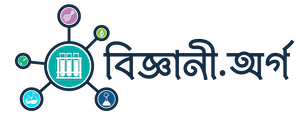
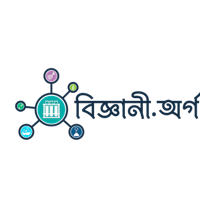
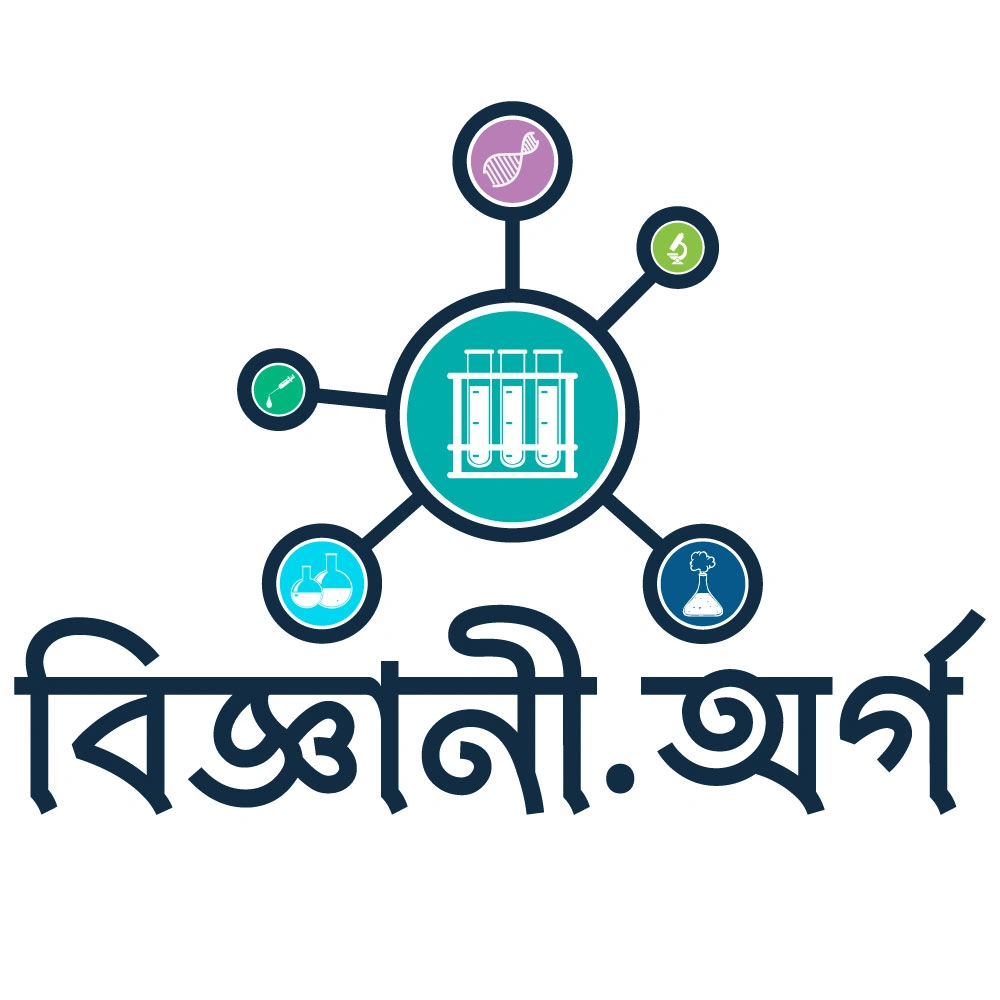

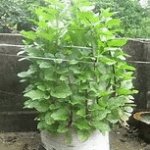
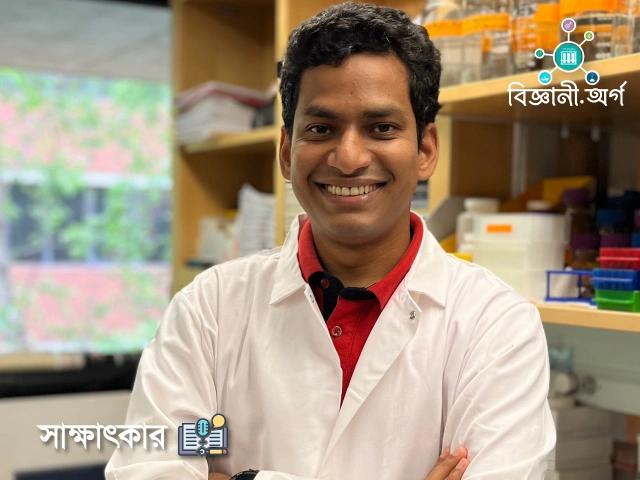
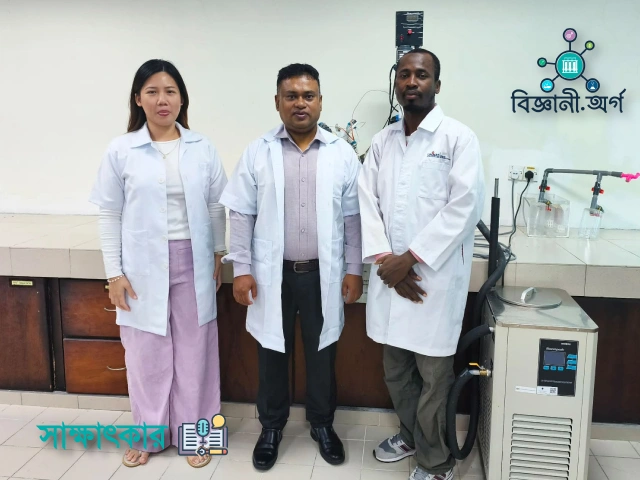
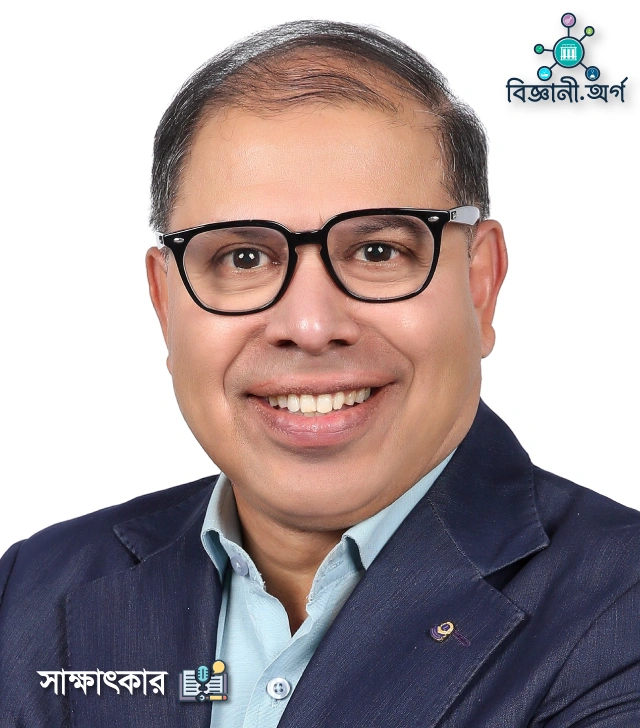
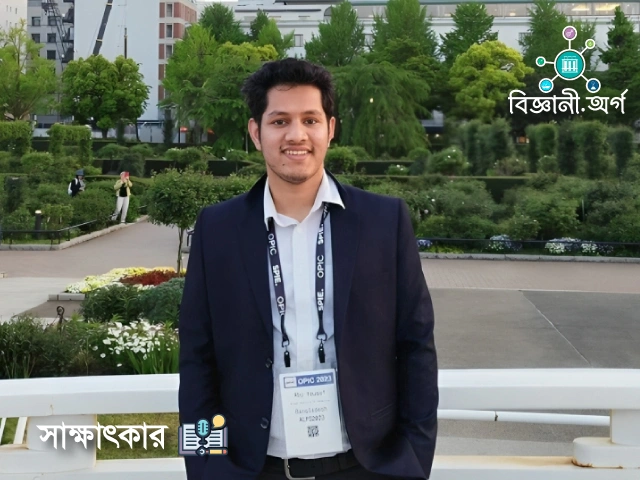
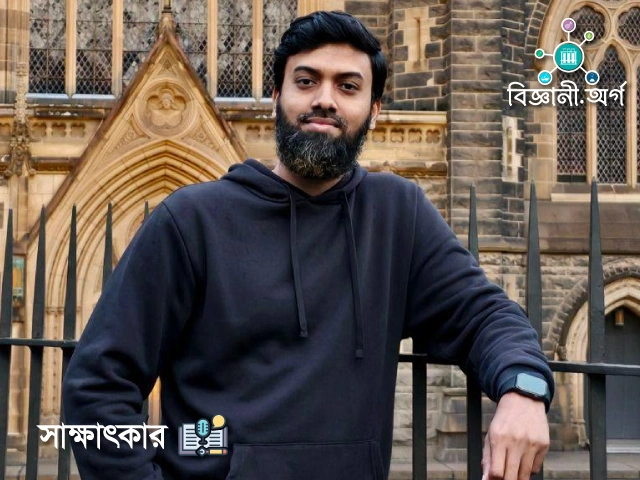
Wonderful! Life is a continuous process of learning.
Greetings Salma Akter,
Thanks for your inspirational thoughts.